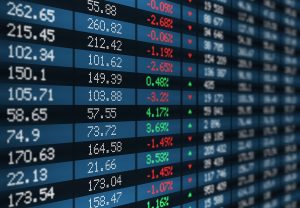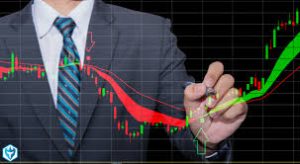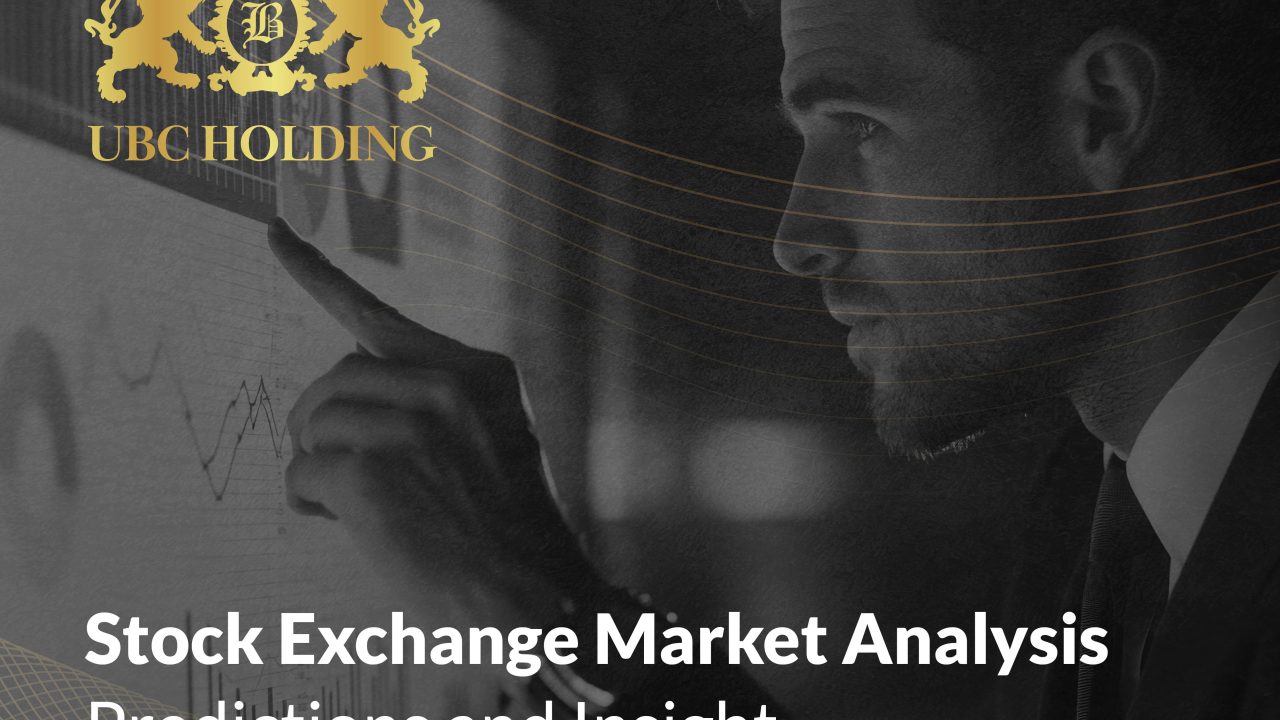The stock exchange market is a crucial component of the global financial system. It serves as a platform where investors can buy and sell shares of publicly traded companies, providing liquidity and enabling capital formation. Understanding the stock market, its trends, and predictions is vital for investors, policymakers, and financial analysts. In this article, we’ll delve deep into the intricacies of the exchange market, offering valuable insights and future predictions.
The Basics of the Stock Exchange Market

The stock market is a centralized location where stocks, bonds, and other securities are traded. Major stock exchanges like the New York Stock Exchange (NYSE), NASDAQ, and the Tokyo Stock Exchange play a significant role in the global economy. These exchanges facilitate the buying and selling of securities, ensuring transparency, liquidity, and price discovery.
How Does the Stock Exchange Market Work?
In the stock exchange market, companies list their shares through an initial public offering (IPO). Investors can then buy and sell these shares through brokers. The prices of stocks are determined by supply and demand dynamics. When more investors want to buy a stock than sell it, the price goes up, and vice versa.
Importance of the Stock Exchange Market
The stock exchange market is essential for several reasons:
- Capital Formation: Companies raise capital for expansion and growth by issuing shares.
- Liquidity: Investors can easily buy and sell shares, providing liquidity to the market.
- Price Discovery: The market determines the price of securities through supply and demand.
- Economic Indicator: The performance of the stock exchange market often reflects the overall health of an economy.
Key Factors Influencing the Stock Exchange Market

Economic Indicators
Economic indicators such as GDP growth, unemployment rates, and inflation significantly impact the stock exchange. Positive economic data can boost investor confidence, leading to higher stock prices. Conversely, negative economic data can lead to market downturns.
Interest Rates
Interest rates set by central banks influence the stock exchange market. Lower interest rates make borrowing cheaper, encouraging investment and spending, which can boost stock prices. Higher interest rates, on the other hand, can reduce borrowing and spending, leading to lower stock prices.
Corporate Earnings
Corporate earnings reports provide insight into a company’s financial health. Strong earnings can drive stock prices up, while weak earnings can lead to a decline in stock prices. Investors closely monitor quarterly earnings reports to make informed decisions.
Geopolitical Events
Geopolitical events such as elections, wars, and trade disputes can create uncertainty in the stock exchange market. Investors tend to react to these events, leading to increased volatility. Understanding the potential impact of geopolitical events is crucial for market participants.
Market Sentiment
Market sentiment, driven by investor psychology, plays a significant role in the stock exchange market. Positive sentiment can drive stock prices up, while negative sentiment can lead to market declines. Sentiment is often influenced by news, social media, and analyst reports.
Stock Exchange Market Trends

Rise of Technology Stocks
In recent years, technology stocks have dominated the stock exchange market. Companies like Apple, Amazon, and Microsoft have seen significant growth, driven by innovation and consumer demand. The tech sector’s performance often influences the broader market.
Growth of ESG Investing
Environmental, Social, and Governance (ESG) investing has gained traction in the stock exchange market. Investors are increasingly considering ESG factors when making investment decisions. Companies with strong ESG practices are often rewarded with higher stock prices.
Increased Retail Participation
The rise of online trading platforms has led to increased participation from retail investors. Retail investors now have easier access to the stock exchange market, contributing to higher trading volumes and market volatility.
Impact of COVID-19
The COVID-19 pandemic had a profound impact on the stock exchange market. Initial market declines were followed by a robust recovery, driven by stimulus measures and vaccine rollouts. The pandemic highlighted the importance of adaptability and resilience in the market.
Emergence of Cryptocurrencies
Cryptocurrencies have emerged as a new asset class in the stock exchange market. Bitcoin, Ethereum, and other cryptocurrencies have attracted significant attention from investors. The integration of cryptocurrencies into traditional finance is an ongoing trend.
Predictions for the Stock Exchange Market
Continued Technological Innovation
Technological innovation will continue to shape the stock exchange market. Advancements in artificial intelligence, blockchain, and fintech will drive efficiency and create new investment opportunities. Companies at the forefront of technology are likely to perform well.
Increased Focus on Sustainability
Sustainability will be a key theme in the stock exchange market. Investors will prioritize companies with strong ESG practices, leading to a shift in capital allocation. Sustainable investing will drive long-term growth and create value for stakeholders.
Greater Market Volatility
Market volatility is expected to remain high, driven by geopolitical events, economic data, and investor sentiment. Understanding and managing volatility will be crucial for investors. Diversification and risk management strategies will play a vital role.
Growth of Emerging Markets
Emerging markets will offer significant growth opportunities in the stock exchange market. Countries like India, China, and Brazil will attract capital due to their expanding economies and growing consumer base. Investors will seek exposure to these markets for diversification.
Integration of Artificial Intelligence
Artificial intelligence will revolutionize the stock exchange market. AI-driven algorithms will enhance trading strategies, improve risk management, and provide valuable insights. Companies leveraging AI will gain a competitive edge.
Strategies for Success in the Stock Exchange Market

Diversification
Diversification is a fundamental strategy for success in the stock exchange market. By spreading investments across different asset classes, sectors, and geographies, investors can reduce risk and enhance returns.
Long-Term Perspective
Taking a long-term perspective is crucial in the stock exchange market. While short-term market fluctuations can be unpredictable, a long-term approach allows investors to ride out volatility and benefit from compounding returns.
Fundamental Analysis
Fundamental analysis involves evaluating a company’s financial health, industry position, and growth prospects. Investors who conduct thorough fundamental analysis can identify undervalued stocks and make informed investment decisions.
Technical Analysis
Technical analysis focuses on price patterns, trends, and trading volume to predict future stock movements. By analyzing historical data and using technical indicators, investors can identify entry and exit points for their trades.
Staying Informed
Staying informed about market trends, economic indicators, and geopolitical events is essential for success in the stock exchange market. Regularly reading financial news, attending webinars, and following expert analysis can provide valuable insights.
Common FAQs About the Stock Exchange Market
What is the role of a stock exchange?
A stock exchange facilitates the buying and selling of securities, providing a transparent and regulated platform for investors. It ensures liquidity, price discovery, and capital formation.
How do stock prices fluctuate?
Stock prices fluctuate based on supply and demand dynamics. Factors such as economic data, corporate earnings, and market sentiment influence the buying and selling decisions of investors.
What is the difference between a bull market and a bear market?
A bull market is characterized by rising stock prices and investor optimism, while a bear market is marked by falling stock prices and investor pessimism. Bull markets indicate economic growth, while bear markets reflect economic downturns.
How can I start investing in the stock exchange market?
To start investing in the stock exchange market, open a brokerage account, conduct research, and develop a diversified investment strategy. It’s essential to understand your risk tolerance and investment goals.
What are dividends?
Dividends are payments made by companies to their shareholders, usually in the form of cash or additional shares. They represent a portion of the company’s profits and are typically distributed quarterly.
How does market sentiment impact stock prices?
Market sentiment reflects the overall attitude of investors toward the market. Positive sentiment can drive stock prices up, while negative sentiment can lead to declines. Sentiment is often influenced by news, social media, and economic data.
Conclusion
The stock exchange market is a dynamic and complex ecosystem that plays a vital role in the global economy. By understanding the factors that influence the market, staying informed about trends, and adopting effective investment strategies, investors can navigate the stock exchange market with confidence. As we look to the future, technological innovation, sustainability, and emerging markets will shape the landscape of the stock exchange market, offering exciting opportunities for growth and investment
Navigating the complexities of the stock exchange market requires a deep understanding of its mechanics, a keen eye on market trends, and a strategic approach to investing. Whether you’re a seasoned investor or a newcomer, the insights and predictions shared in this article will equip you with the knowledge needed to make informed decisions and capitalize on the opportunities within the stock exchange market.
Remember, successful investing in the stock exchange market is a journey that involves continuous learning, adaptability, and a long-term perspective. By staying informed, diversifying your portfolio, and leveraging the power of technology, you can unlock the full potential of the stock exchange market and achieve your financial goals.

